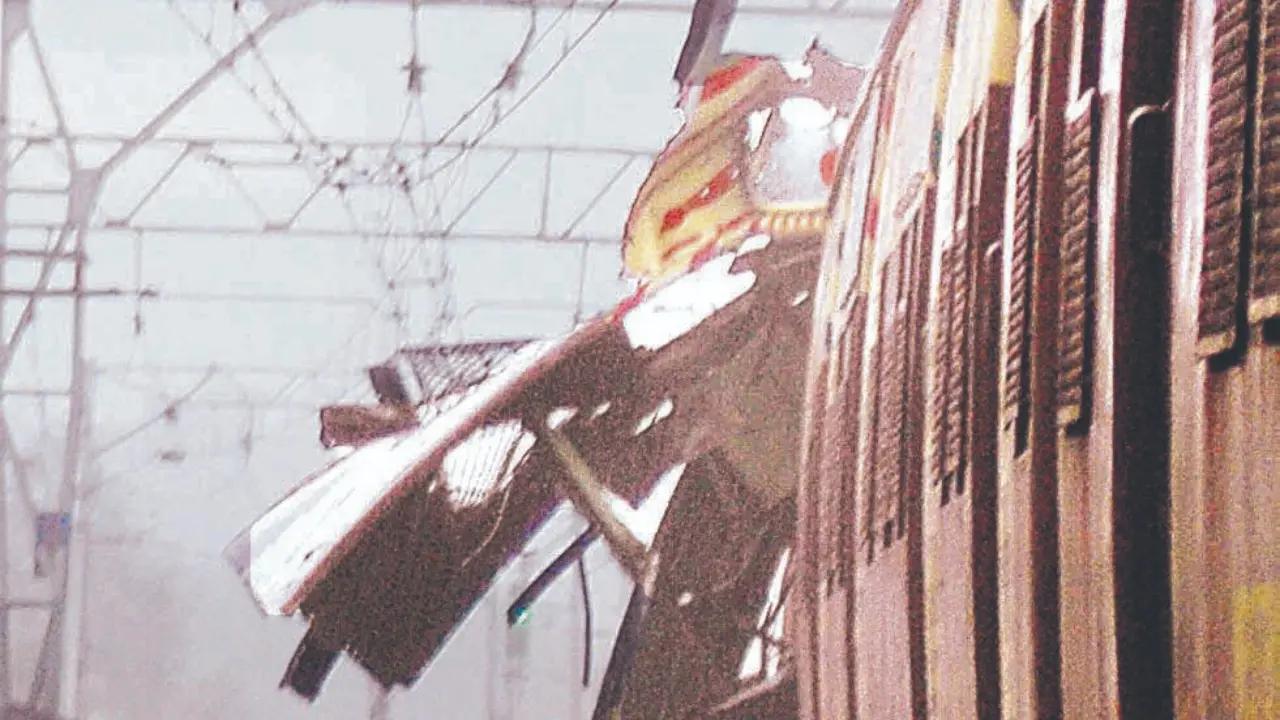Home / Mumbai / Mumbai News / Article /
Mumbai 2006 blasts: Maharashtra govt appoints special prosecutor after HC rebuke
Updated On: 08 September, 2023 07:05 PM IST | Mumbai | mid-day online correspondent
A division bench comprising Justices NW Sambre and Rajesh Patil criticized the government earlier this week, citing a "lack of seriousness" in handling the case

Mangled remains of the first class compartment after the powerful bomb blast at Matunga in Mumbai on 11th July, 2006 (Pic/Nimesh Dave)
In response to a stern rebuke from the Bombay High Court, the Maharashtra government has taken swift action by appointing senior advocate Raja Thakare as the special public prosecutor, a PTI report stated. Thakare will represent the government in the proceedings related to the confirmation of death sentences and appeals filed by the convicts involved in the 2006 Mumbai serial train blasts case.
A division bench comprising Justices NW Sambre and Rajesh Patil criticized the government earlier this week, citing a "lack of seriousness" in handling the case. On Friday, the bench was informed of Thakare`s appointment as the special prosecutor, marking a significant step forward in the legal process.



